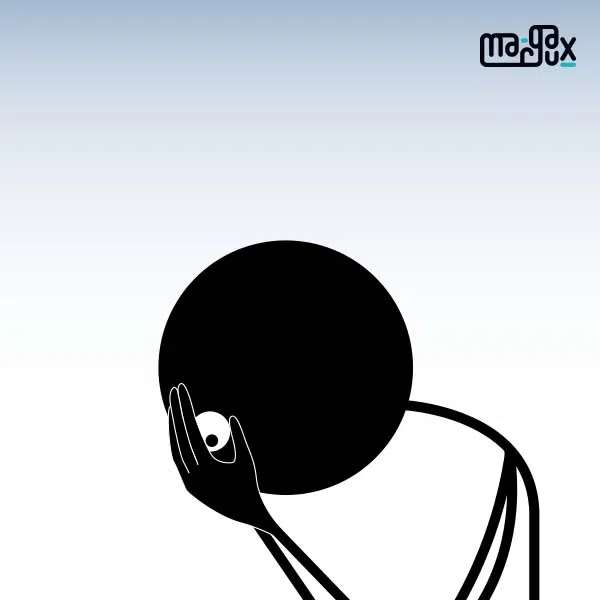For some moral dilemma theorists, regret plays an essential role. Not only would it be part of the mental state of an agent who has chosen between the incompatible options of equivalent value that made up his or her choice, but it could also be a sign that this choice was in the nature of a moral dilemma. When we examine the occurrences of the word “dilemma” in the media over the last two months, among which the “hostage dilemma” facing the State of Israel dominates, we find no explicit association with the negative emotion of regret. We can of course assume, at the risk of formulating an ad hoc hypothesis, that it is present in the discourse at an implicit level, or that, as the dilemmas exposed in the media have not yet been “resolved,” it is too early to speak of “regret.” However, regret is a complex emotion, propositional in nature, counterfactual, based on comparison, which can be anticipated before the decision is made. In short, regret, far from being merely experienced, can have practical effects, which merits a brief examination.

A review of recent press articles using the word “dilemma” provides some insights into the nature of a dilemma:
- a dilemma is based on a disjunction between options, let’s say A and B, of apparently equivalent force or of such value that not choosing either of them will result in harm – a state of affairs that can be expressed in formulas such as: “How can I do A without incurring the harm associated with not doing B?” (1) ;
- a dilemma denotes a situation of tragic choice, and the fact that we find ourselves “faced with” a dilemma (a prepositional phrase often used, meaning “in the presence of” but which here has a connotation of “confrontation”) is evidence of a psychological and moral distress that already precedes the choice (2);
- a dilemma can be, or even must be, insoluble, which leads us to distinguish two types: insoluble dilemmas, which the philosopher Marta Spranzi describes as “irreducible,” leaving a “moral remainder” (or “moral residue”) in the mind of the person confronted with it, i.e. “a refractory uneasiness that persists beyond the action and is due to the fact that one of the obligations inherent in the dilemma could not be satisfied;” and soluble dilemmas, which can be thought of as having the nature of “problems” (3);
- a dilemma is sometimes called a genuine dilemma, which implies that there are “false dilemmas” and that sometimes, intentionally or not, problems are called “dilemmas” (4).
Those who have studied dilemmas (not just researchers) agree that they are fundamental and sometimes psychologically painful moral experiences. By way of illustration of their importance, mention may be made of the occurrences of the word “dilemma” and the expressions “moral dilemmas” and “ethical dilemmas” in the three main English-language journals of business ethics (5). The word “dilemma” appears in the title of 125 articles and in the text of 4,297 articles, and the expressions “moral dilemmas” and “ethical dilemmas” in 30 article titles and in the text of 1,303 articles (6).
In what follows, we will focus on moral dilemmas. A moral dilemma is a situation in which a person has an obligation to do A, has an obligation to do B, but cannot do both A and B. It is most often used in connection with insoluble dilemmas, in which neither obligation prevails over the other, on the understanding that there is no higher-level obligation or value to decide between A and B.
The subject of our reflection concerns the “moral remainder” mentioned by Marta Spranzi, whom we quoted earlier. The philosopher Bernard Williams, who has defended its role in the definition of moral dilemmas, identifies this moral remainder with the negative emotion of regret (7). Here’s what he says about the option (which he calls the “item”) that was not chosen by the person faced with a moral conflict:
“The item that was not acted upon may, for instance, persist as regret, which may (though it does not always) receive some constructive expression.”
Post-decision regret is conceptually linked to the option that was not chosen. It has not been “eliminated” as a result of the choice (“many ethical theories […] eliminate from the scene the ought that is not acted upon”), and, for Williams, the “remainder” it leaves in the agent’s mind after the decision (“Moral conflicts are [not] all soluble without remainder”) takes the form of regret (8). In the words of the philosopher Rosemarie Monge in an article published in the Journal of Business Ethics,
“even when choosing the best course of action all-things-considered, one has nevertheless infringed upon or violated the unmet obligation. Therefore, one is doomed to commit a wrong despite doing what one ought.” (9)
We said that the emotion of regret was propositional in nature: “One regrets that...”. Regret refers to an object – a propositional object – and can be linked to the fact, as Philippa Foot says, that “something in some way bad has happened” (10). The object Williams is talking about is not the fact that the option chosen by the agent has “painful” or “terrifying” consequences. Rather, the object of regret is the fact that the option not chosen continues to exert its effects, not only subjectively (in the agent’s mind), but also objectively (according to a universal point of view or according to the norms in force in society, which may require us to feel regret in certain situations). This regret has a moral nature, linked to the structure of the choice with which the agent was confronted.
Our purpose here is not to discuss Williams’ argument. Let us just note that it has been criticised by Foot, who observes that feeling regret does not imply that the proposition to which the regret refers is true. Indeed, one can feel regret without it being justified, as in the case (the example is Foot’s, who prefers to cite another negative emotion) where one feels an emotion of guilt after having donated the property of a deceased relative: such an emotion is irrational (it is not justified), but it is understandable that it can be felt in these circumstances (11).
Williams notes that the regret experienced by an agent following a moral conflict may not be devoid of practical effects:
“It is […] possible […] that the moral impulse that had to be abandoned in the choice may find a new object, and I may try, for instance, to ‘make it up’ to people involved for the claim that was neglected. These states of mind do not depend, it seems to me, on whether I am convinced that in the choice I made I acted for the best; I can be convinced of this, yet have these regrets, ineffectual or possibly effective, for what I did not do.”
Two points are relevant here: on the one hand, I can experience regret while being convinced that I have made the right choice; on the other hand, regret can have practical effects: it may be “ineffectual or possibly effective.” This ties in with the “constructive expression” in which regret can manifest itself, which was mentioned in a previous quotation from Williams.
There are two ways of looking at these practical effects. The one that Bernard Williams envisages seems to concern the reparation or compensation that it is possible to make after the resolution of a moral dilemma – it is hardly imaginable in the tragic dilemma of Agamemnon that he proposes, in which the commander-in-chief had to choose between sacrificing his daughter Iphigenia and avenging the honour of the Greeks, or in that of William Styron’s Sophie’s Choice, which is often quoted in connection with insoluble moral dilemmas (12). But there is another interpretation, based on the capacity of regret to influence our future decisions – this is known as “anticipated regret,” i.e. imagining the regret we would feel in the future if we performed a given action, which, incidentally, does not mean that we feel now the regret we might feel later (13).
This ability to imagine the regret we might feel if, faced with a future choice, we chose a given option (or any of the options available), refers to the counterfactual and comparative dimensions of regret, which are well described by the philosophers Jon Elster and Pierre Livet. With regard to the counterfactual dimension, Elster observes that “some emotions are generated by counterfactual thoughts about what might have happened or what one might have done.” Thus, “regret is the emotion that occurs when we realize we could have made a hoped-for positive event occur if we had made a different choice” (14).
Livet gives a precise description of the comparative dimension of regret, which he classifies as one of the “emotions of comparison:”
“[Emotions of comparison] result from the difference between the future situation first envisaged, and another future situation, obtained by another action, or by the same action but in another state of the world, with which we compare it. [...] By imagination, we place ourselves in a future situation – this future thus becomes our present – and we evaluate it in relation to another counterfactual situation, which could have been ours in this future present if we had acted differently or if the state of the world had been different.” (15)
If we apply this description to regret, it does not arise here from the difference between the result (state of affairs) Rt that the agent envisaged at time t (before the decision) and the result, Rt+1, that actually occurred in t+1 (after the decision). It is more a question of
- the comparison between, on the one hand, the future result R(A, V)t+1 (V denotes the state of the world in t+1) which would be produced if option A were chosen at time t, and, on the other hand, the future result R(B, V)t+1 which would be produced if option B were chosen at time t,
- or the comparison between, on the one hand, the future result R(A,V)t+1 which would be produced if, option A being chosen at time t, V were the state of the world in t+1, and, on the other hand, the future result R(A,W)t+1 which would be produced if, option A also being chosen at time t, W were the state of the world in t+1.
Some arguments and proverbial sayings such as “The past is the past” or “Don’t cry over spilt milk” seem to deny regret a role in decision-making. But this is not true. Regret is a useful emotion, especially when considering future choices. Expressions such as “I’m going to regret this” reveal an aversion to regret – and, more broadly, a desire to avoid the effects of negative emotions. We can imagine a person deliberating on the best course of action to take in a given situation, telling themselves: “I can’t do that because I’ll regret it.”
The influence of regret on decision-making has been the subject of much research in the social sciences, particularly in social psychology and economics. The psychologist Marcel Zeelenberg noted, for example, that “regret aversion has a profound influence on […] decisions, because the possibility of regret is anticipated, and subsequently taken into account when making decisions” (16). He insisted on the particular role of regret in situations – close to the moral dilemmas we have been talking about – in which the choice options have equal value in the agent’s eyes:
“When there are more alternatives or behavioral options of roughly equal attractiveness, people will worry more about the consequences. When deciding between the options, they will compare them more thoroughly and they will anticipate the regret they might feel when a rejected option proves to be better than the chosen one. In these cases a bad outcome can easily be interpreted as a signal that the wrong choice was made. This suggests that the more difficult a decision is, the more likely it is that people take regret into account when deciding.”
The role of regret could be one of “regulation,” which would include not only the avoidance of negative emotional experiences, but also the “inhibition” of certain courses of action, which, for example, would violate social and moral norms. In any case, the anticipation of regret is likely to stimulate reflection and deepen deliberation. This gives the emotion a rational character, and lends substance to Bernard Williams’ statement that regret can manifest itself in “some constructive expression.”
Références
(1) See these examples: “Israel faces hostage dilemma in Gaza,” New York Times, 31 October 2023, (in French): “Israel is faced with a cruel dilemma: how to eradicate Hamas without endangering some 200 hostages held in the Gaza Strip?” (“Israël confronté au dilemme des otages,” Les Echos, 17 October 2023, my translation), and “The auditors fear that the expansion of offshore renewable energy in Europe could be detrimental to the marine environment, both below and above sea level” (“Offshore renewable energy: EU auditors highlight green dilemma,” European Court of Auditors, 18 September 2023).
(2) See for example (in French) “Otages à Gaza : Israël face à des choix éthiques, politiques et militaires déchirants,” Le Monde, 18 October 2023, and “Offshore renewable energy: EU auditors highlight green dilemma,” op. cit.
(3) See (in French) “Israël, le dilemme insoluble du ‘chien fou’,” La Repubblica, in Courrier International, 13 October 2023, and M. Spranzi, Le travail de l’éthique. Décision clinique et intuitions morales, Mardaga, 2018.
(4) « The surge in offshore renewable energy brings its own ‘green dilemma:’ offshore renewable energy is key for the EU’s green transition, but its development may damage the marine environment. While the EU strategy tries to reconcile offshore renewable energy with biodiversity, the European Commission has not estimated its potential environmental effects, including species displacement and changes in population structure, food availability or migratory patterns, to name but a few” (“Offshore renewable energy: EU auditors highlight green dilemma,” op. cit.). On false dilemmas, see my column on euradio (in French): “Le ‘dilemme écologique’ de l’Union européenne relatif aux énergies marines renouvelables est-il un véritable dilemme ?,” euradio, November 2023. On the difference between a dilemma and a problem, see Barbara Toffler (Managers talk ethics. Making tough choices in a competitive business world, John Wiley and Sons, 1991), who proposes, for example, that problems involve a single value, whereas dilemmas concern multiple values likely to be in conflict.
(5) Journal of Business Ethics, Business Ethics Quarterly, et Business Ethics: A European Review.
(6) Our short survey was carried out in mid-October 2023. We felt it unnecessary to relate this data to the total number of articles published. It should be noted that, with regard to the expressions “moral dilemmas” and “ethical dilemmas,” a third of the articles (432) refer to the work of the moral psychologist Lawrence Kohlberg, who based his experimental situations on the concept of dilemma.
(7) B. Williams, “Ethical consistency,” Proceedings of the Aristotelian Society, Supplementary Volume XXXIX, 1965.
(8) This is the “argument of moral sentiment,” used to justify the existence of moral dilemmas, which Christine Tappolet describes as follows: “The central idea of this argument is that the agent who apparently finds oneself caught between two obligations that he or she cannot satisfy jointly will often feel regret after having acted, whatever obligatory action he or she has chosen. Such regret seems appropriate. The argument goes on to say that the best explanation for the appropriateness of such regret is that the agent has neglected one of his or her obligations. Since regret would be appropriate whatever the neglected obligation, it seems that one must conclude that the agent does have two conflicting obligations.”
(C. Tappolet, “Les dilemmes moraux et les devoirs prima facie,” in M. Canto-Sperber (ed.), Dictionnaire d’éthique et de philosophie morale, PUF, 1996.)
(9) R. Monge, “Institutionally driven moral conflicts and managerial action: Dirty hands or permissible complicity?” Journal of Business Ethics, 129, 2015, pp. 161-175. In our view, this is the leading article on regret in the field of business ethics.
(10) “To feel regret is at least to feel as if something in some way bad has happened” (P. Foot, « Moral realism and moral dilemma », The Journal of Philosophy, 80(7), 1983, pp. 379-398.).
(11) However, it is debatable whether Philippa Foot’s example is legitimate. Jon Elster, who offers another example, makes a clear distinction between guilt and regret: “Although some people blame themselves for bad outcomes that they could have prevented even when they could not have known what to do at the time (‘If I had only called him up, he would have left later and not been killed in the accident’), these are cases of (irrational) guilt, not regret” (Strong feelings. Emotion, addiction, and human behavior, The 1997 Jean Nicod Lectures, The MIT Press, 1999).
(12) References to this tragic fictional dilemma are readily available, but an interesting analysis can be found in Jean-Pierre Dupuy’s Le sacrifice et l’envie, Calmann-Lévy, 1992.
(13) On the distinction between these two forms of regret, known respectively as “anticipated regret” and “anticipatory regret,” see this definition: « Anticipatory emotions are immediate visceral reactions (e.g., fear, anxiety, dread) to risks and uncertainties. Anticipated emotions are typically not experienced in the immediate present but are expected to be experienced in the future.” (G. F. Loewenstein, E. U. Weber, C. K. Hsee & N. Welch, “Risk as feelings,” Psychological Bulletin, 127(2), 2001, pp. 267-286.)
(14) J. Elster, Explaining social behavior, Cambridge University Press, 2007.
(15) P. Livet, “Dans quelles conditions les émotions collectives peuvent-elles bloquer ou aider la délibération démocratique?” Revue européenne des sciences sociales, XLV(136), 2007, pp. 111-128.
(16) M. Zeelenberg, “Anticipated regret, expected feedback and behavioral decision-making,” Journal of Behavioral Decision Making, 12, 1999, pp. 93-106. On the negative emotion of regret, see Christine Tappolet, Fabrice Teroni et Anita Konzelmann Ziv (eds), Les ombres de l’âme. Penser les émotions négatives, éditions Markus Haller, 2011.
To cite this article: Alain Anquetil, “The effects of regret in moral dilemmas,” Philosophy & Business Ethics, 15 November 2023.




